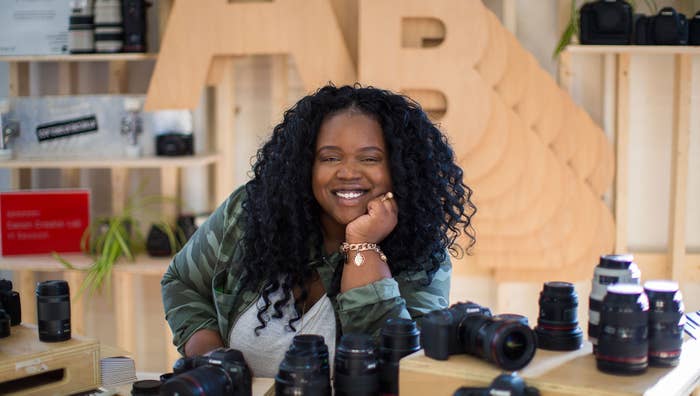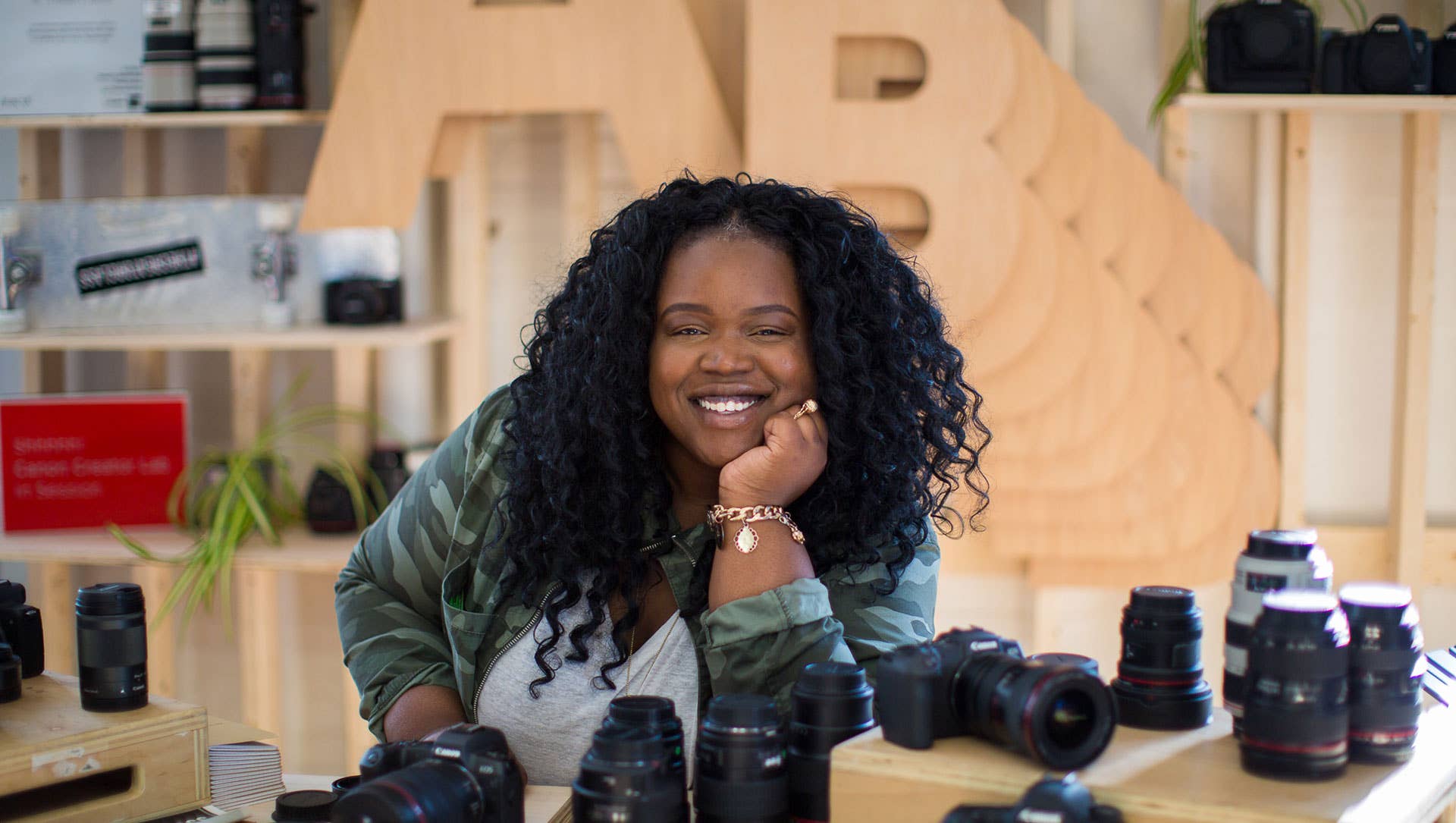
TIFF looks very different this year. Obviously, pandemic-related distancing measures have marred the IRL aspect of enjoying the year’s most exciting new films in a theatre packed with fellow cinephiles.
But different isn’t always a bad thing. Drive-ins, online streaming, and reduced capacities at theatres are some ways that the annual festival has shape-shifted to adapt to the Ontario’s current health and safety measures. In doing that, some say that the festival is more accessible than ever.
One thing that the pandemic hasn’t put a stop to is RBC’s Women in Film series. Since launching last year, the video series has been a vessel for recognizing emerging leaders in Canadian film and celebrating the next generation of women behind the camera.
One of this year’s participants, director, producer, and writer Sasha Leigh Henry, first started at TIFF as a volunteer. This year, she is back as the director of the short film Sinking Ship and producer of the short film Black Bodies, which won the festival’s $10,000 Changemaker Award.
In a phone conversation after Sinking Ship’s premiere, Henry described the film as an example of “unpacking Black love in a healthy way or a mature way with agency for the Black woman.” She also described how important it was that her characters’ narratives weren’t “bogged down with some of the societal strife of what it means to be Black in the world. Untethering them from that is a very important thing to start adding to the cinematic landscape.” Centring a carefully-constructed post-mortem of a relationship, Sinking Ship is a concise, nuanced depiction of Black love.
In the midst of TIFF, we caught up with Henry to chat about the authenticity of accolades, her upbringing, and the importance of networking.
Black filmmakers were always deserving of accolades but the industry seems to only be taking notice now. Do the acknowledgements and accolades ever feel performative?
Whenever you’re hired as the first or the only on any sets, you always wonder. So I’ve always had that thought. But what I know is that I have always been diligently working towards this. So none of the wins that we’re receiving are based on favours. I feel so confident in the work that we did to get here. Sometimes awards are arbitrary but the reality is that we believe in the work that we’ve done and we’ve put in the work regardless, so knowing that we’re deserving of it makes the acknowledgement that much sweeter.
Growing up, which filmmakers did you look up to?
What inspired me to get into the industry was Fresh Prince and Will Smith. Growing up, comedy in film and television was a total escape so we watched a lot of it. I just loved Fresh Prince. It was intersection of all these different kinds of Blackness that were living in one house. That’s what made me want to start performing. But the more I unpacked it, I didn’t want to play the sassy Black friend. I wanted to protect my self-esteem, which I know is such a hard experience for actors because of how vulnerable you have to make yourself, so I started writing and directing.
Once I started exploring those, I was inspired by Judd Apatow and Mara Brock Akil. Judd Apatow takes life moments and unpacks them over the course of two hours with the backdrop of friendship, which is really beautiful. And Mara Brock Akil was showing the type of Black person that I felt I was or wanted to be. There was a lot more aspiration in the characters that she was presenting.
"Rejection is part of this career but what keeps you going is having that network of peers that are at the same level as you and are also going through it."
How has the RBC Women In Film series helped to propel your career as a filmmaker?
It has definitely helped to expand my network and has helped legitimize me. I am very much on the indie side of filmmaking, which can be a bubble, so this has helped to legitimize me to people outside of the industry. Part of what you’re doing at the beginning as a filmmaker is audience building. It’s not necessarily a numbers game but you do want your work to be finding the audience that is responding to it and connecting to the stories that you have to share.
Issa Rae has spoken about the importance of networking laterally. Is that something that resonates with you? How do your peers inspire you?
That definitely resonates with me. My peers are how I insulate myself from some of the hardships of this career. Rejection is part of this career but what keeps you going is having that network of peers that are at the same level as you and are also going through it. In the past it has felt like the industry was so scarce that to find like-minded peers to network across with would have been a struggle.

